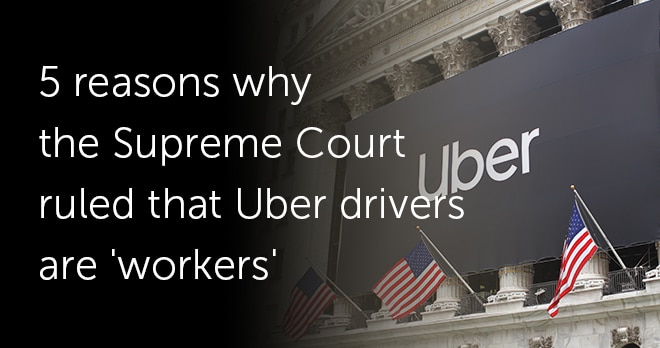5 reasons why the Supreme Court ruled that Uber drivers are ‘workers’

The court highlighted that employment legislation is designed to protect vulnerable people with little or no control over their working conditions, therefore the Employment Tribunal was justified in making its original decision.
There were 5 key reasons for the decision:
1. When a ride is booked, Uber calculates the fare, thus dictating how much drivers are paid;
2. The contract terms are decided by Uber, there is no room for negotiation;
3. Once logged on, drivers have limited scope to refuse jobs, and are given penalties for doing so;
4. Drivers are subject to a rating system, which can lead to warnings and the contract being terminated if the driver has a consistently low rating;
5. Uber restricts communications between drivers and passengers, which prevents drivers from building relationships.
Substantial control
The court found that Uber had substantial control over the drivers, and drivers were prevented from increasing their earnings in an entrepreneurial manner; the only way to increase their earnings was to work more hours under the conditions provided by Uber.
Lord Leggatt also confirmed that working time is not limited to driving to pick up passengers and for the journey itself, it also includes being logged into the app and therefore being ready and willing to work.
So what are the implications?
This decision is likely to have massive implications for Uber as a business, and the gig economy as a whole, as workers are entitled to significantly more employment rights than the genuinely self-employed. It remains to be seen if Uber will realistically be able to continue to operate.
It is also significant that “working time” has been found to also include simply being logged into the app, as drivers will be entitled to receive the National Minimum Wage during this time, meaning Uber’s thousands of drivers could have substantial claims for unpaid wages.